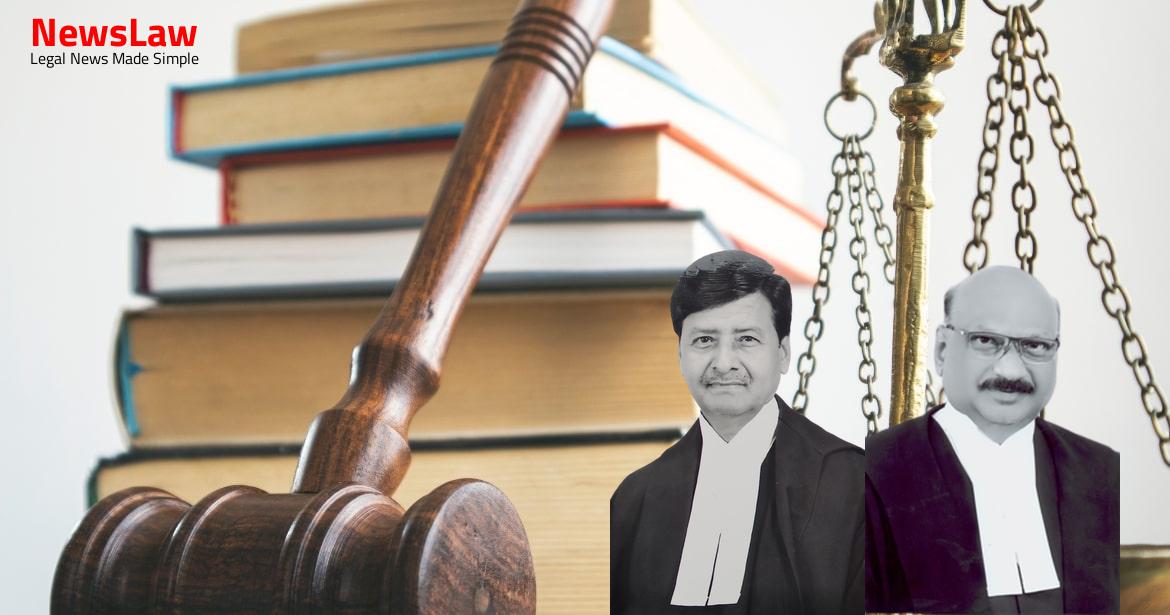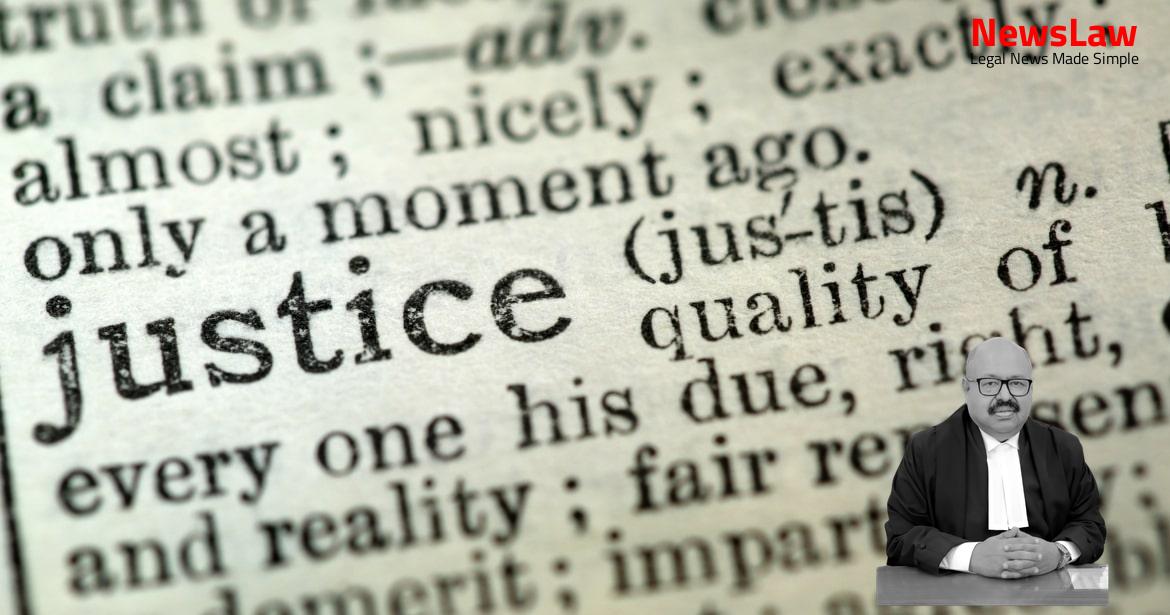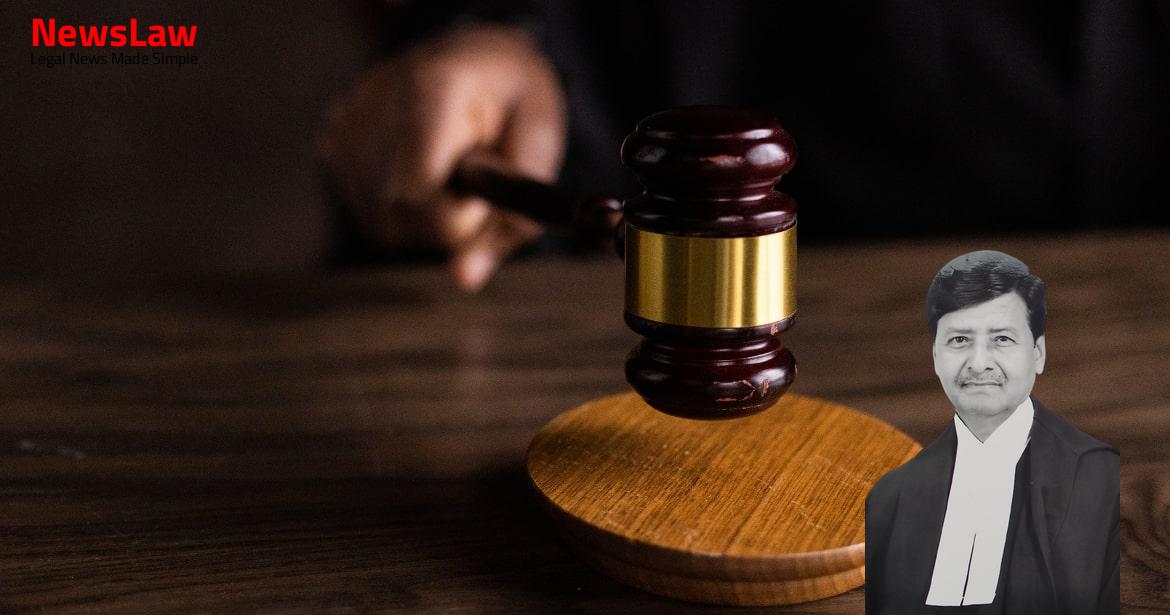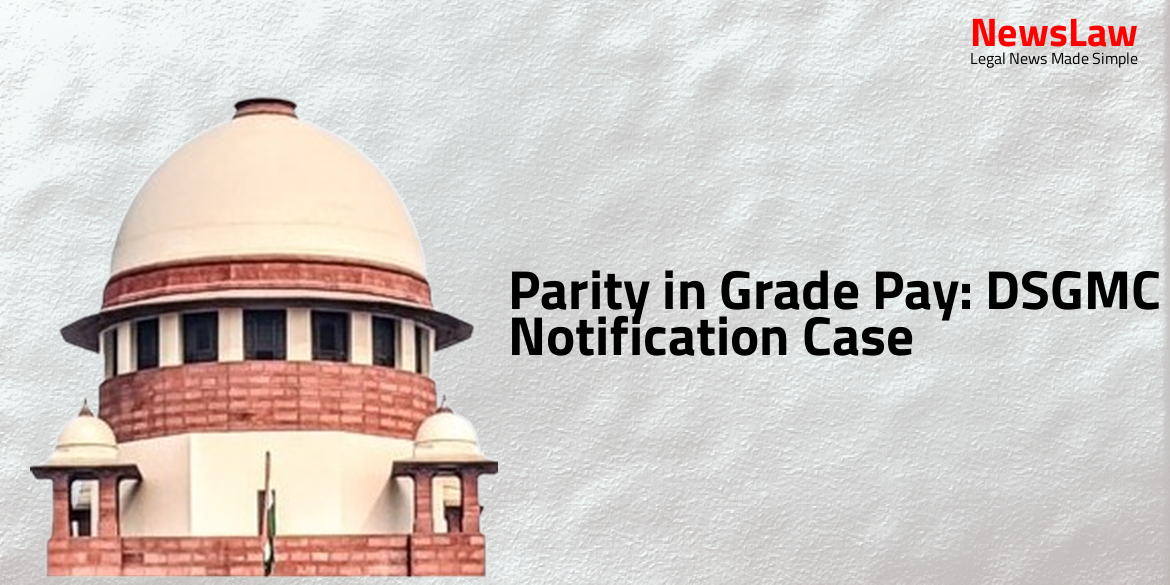Delve into the intricate legal analysis of a case revolving around the interpretation of insurance policy provisions to ascertain liability. The court’s scrutiny of the policy terms and conditions, particularly in relation to the nature of the insured’s death, plays a crucial role in the decision-making process. Stay tuned to understand how the court’s examination of the policy details shapes the outcome of the case.
Facts
- The District Forum concluded that the death of the deceased was not natural but accidental based on the definition of asphyxia.
- The quantity of alcohol found in the deceased’s body was not sufficient to cause death, as per medical opinion.
- The National Commission observed that HPSFC could not avoid liability under the Workmen’s Compensation Act.
- The Commissioner had passed an award directing HPSFC to pay compensation to the appellants which was appealed by HPSFC in the High Court.
- The National Commission allowed the Revision Petition filed by HPSFC against the State Commission’s order.
- The cause of death was determined as asphyxia resulting from food regurgitation into the larynx and trachea after alcohol consumption.
- The insurance claim made by the legal heirs of the deceased was repudiated by the Insurance Company, leading to a consumer complaint.
- Expert opinions obtained indicated that alcohol ingestion and regurgitation of food into the larynx were contributing factors to the death.
- The District Forum held the Insurance Company liable to pay the insured amount of Rs. 2 lakhs to the appellants.
- State Commission modified District Forum’s order to hold Respondent No.1-HPSFC liable instead of the Insurance Company.
- State Commission determined that the death was not accidental as there were no external injuries or marks of violence on the deceased.
- Conclusion was drawn that the Insurance Company cannot be held liable under the Insurance Policy in this case.
- Key issue considered was whether the death was natural or accidental to determine liability between Respondent No.1-HPSFC and the Insurance Company.
Arguments
- Appellants argue that the terms and conditions of the Insurance Policy were not communicated to the insured persons.
- Appellants contend that even if the Insurance Policy is not applicable, HPSFC may be held liable for compensation under the 1923 Act.
- Insurance Company contended that the deceased died a natural death, not covered under the Insurance Policy.
- The Insurance Policy only covers bodily injury resulting solely from accidents caused by outward, violent, and visible means.
- Exclusion clause in the Insurance Policy states that claims will not be payable if the insured dies under the influence of intoxicating substances.
- Deceased was heavily drunk before his death which was not accidental.
- Claim is not payable under the Policy as there was no evidence of an accident causing bodily injury to the deceased.
- Appellants argue that the deceased was not informed that the Insurance Policy covers only accidental deaths.
- The State Commission and National Commission concluded the death was not accidental.
- Deceased was an employee, not a consumer, and therefore the complaint was not maintainable under the Consumer Protection Act.
- Appellants argue that the Insurance Scheme is an additional entitlement to compensation under the 1923 Act.
- Insurance Company and HPSFC would not be liable if the death did not result from an accident.
- HPSFC had no liability under the Insurance Policy as they were acting as a mediator between the insured and the Insurance Company.
- If the insured died an accidental death, the Insurance Company would be liable regardless of whether it occurred within the course of employment.
- There is no direct evidence or bodily injury to prove the claim that the deceased died from a fall during the storm at night.
- Expert opinions of Dr. D.J. Das Gupta and Dr. D.S. Puri indicate the deceased was intoxicated at the time of death.
- The Insurance Company argues that the death was not accidental and cites the expert opinions as evidence.
- The cause of death, according to the experts, was consumption of alcohol.
- The National Commission and State Commission rightfully concluded that the death was not accidental as per the Insurance Policy terms, particularly Proviso 4.
Analysis
- The National Commission held that the death was not accidental, therefore the repudiation of the claim by the Insurance Company was correct.
- The deceased was led to believe that the policy covered natural death in the Jamuna Devi case.
- The Insurance Scheme in question did not specify coverage only for accidental death, but ‘death’ in general.
- No evidence provided shows the deceased in the present case believed natural death was covered by the Insurance Policy.
- The liability of Respondent No.1-HPSFC was as a mediator for premium deposit and not under the Insurance Policy.
- The judgment in Jamuna Devi case was specific to its facts, and the idea of covering natural death was supported by a communication from 1996.
- Appellants failed to prove a storm caused the death to align with broader terms of Insurance Scheme from 1996, as mentioned in a communication.
- The National Commission’s decision held the employer liable for compensation due to lack of evidence supporting an accidental death.
- The Insurance Policy only covers accidental death resulting solely from outward, violent, and visible means.
- Post-Mortem Report indicated no injuries on the body, with the cause of death attributed to alcohol consumption and regurgitation.
- The Insurance Policy’s provisos stated no compensation would be paid if the insured was under the influence of intoxicating liquor.
- The insurance policy includes Proviso 4 which lists the situations where the company shall not be liable for compensation.
- These situations include intentional or attempted suicide, being under the influence of intoxicating substances, insanity, and committing criminal acts with intent.
- The company is not liable for compensation in these specific scenarios as outlined in Proviso 4 of the policy.
- Proviso 4 of the judgment states that the injured is not entitled to compensation if it is proved that he was intoxicated at the time of the incident.
- The decision of the National Commission is not interfered with based on the above observations.
Decision
- No order as to costs
- The Appeal stands dismissed
Case Title: NARBADA DEVI . Vs. H.P. STATE FOREST CORP. . (2021 INSC 196)
Case Number: C.A. No.-006379-006379 / 2010



